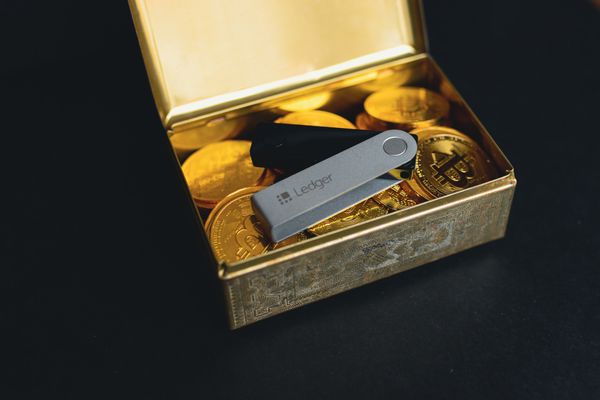Crypto Recovery Services: Scam or Legitimate?

Losing access to your cryptocurrencies can be a nightmarish scenario. Whether you forget your passwords, fall victim to hacks or phishing scams, or experience hardware failures with your crypto wallet, the first thing you might want to do is contact a crypto recovery service.
However, the unfortunate reality is that while few crypto recovery services are legitimate, most are scams designed to prey on those already in distress. Getting scammed while attempting to recover from a previous scam would be the worst-case scenario.
Crypto recovery services don’t recover your lost or stolen money
How crypto asset loss happens
Cryptocurrencies are digital assets stored in secure, decentralized systems known as blockchains. These digital currencies, like Bitcoin, Ethereum, or Litecoin, are intangible and exist solely in the digital realm. Therefore, crypto loss refers to the situations where access to these digital assets is somehow compromised, resulting in the inability to retrieve or use them.
Crypto loss can occur for various reasons, and understanding them helps you prevent such mishaps in the future.
1. Misplacing or forgetting the private keys or passwords required to access your crypto wallet. Just like your personal bank account requires a password, crypto wallets rely on private keys to secure access to your funds. If you misplace or forget your private key, it becomes incredibly challenging, if not impossible, to regain control over your crypto.
2. Falling victim to phishing attacks, hacking attempts or scams that compromise your login credentials. Malicious individuals may send fraudulent emails or create fake websites that mimic trustworthy crypto services. They might even impersonate legitimate crypto recovery companies, so be cautious. If you unwittingly fall for these scams and disclose your private key or login credentials, you could face a substantial loss.
3. Experiencing hardware failures or technical glitches with your crypto wallet device. If your hardware wallet malfunctions, gets damaged, or goes missing, you might lose access to your crypto holdings.
4. Making errors when setting up wallets or executing transactions. It's not uncommon for people to make mistakes while setting up their wallets, sending transactions, or managing their crypto assets. These errors can result in irreversible losses.
Did you know?
- Cryptocurrency users lost nearly $2 billion to scams, rug pulls, and hacks in 2023.
- The average loss per victim was $28,000 in 2023, making cryptocurrency the second-highest payment type in terms of monetary losses, following bank transfers.
Dealing with such losses can be incredibly frustrating, and therefore, crypto recovery services offer a glimmer of hope for reclaiming your lost digital fortunes. provided they are not scams, too.
How to tell a crypto recovery service is legit
Reputable crypto recovery services specialize in various scenarios, such as decrypting encrypted wallets, recovering lost passwords, and regaining access to your Bitcoin wallet. They prioritize confidentiality and employ strict security measures to protect your sensitive financial information throughout the recovery process. These services only charge you after successfully recovering your assets. It's important to note that legitimate recovery services will never promise to recover your lost or stolen Bitcoin because it's nearly impossible.
Scammers, on the other hand, may make such promises and ask for an upfront fee because they know they cannot deliver. Therefore, it's crucial to be cautious and do your research before trusting any recovery service with your assets.
So, before paying anyone to help you with your crypto assets, consider these key factors:
1. Reputation and trustworthiness. Research the company's background, track record, and customer reviews. When entrusting someone with your valuable crypto assets, reputation is key.
2. Expertise and experience. Evaluate the service's expertise in various cryptocurrencies, blockchain technologies, and recovery techniques. Look for proven experience handling complex cases similar to yours.
3. Range of services. Make sure that the recovery service you choose offers solutions tailored to your specific needs, whether password recovery, or wallet decryption.
4. Security and confidentiality: Prioritize services that safeguard your privacy and assets by employing robust security protocols, data encryption, and confidentiality agreements.
5. Transparent pricing. Avoid services with hidden fees or vague pricing structures. Seek upfront transparency regarding costs and payment terms.
6. Customer support. Responsive and knowledgeable customer support can significantly assist during the recovery process.
7. Recommendations and referrals. Seek recommendations from trusted sources within the crypto community, as word-of-mouth can be invaluable when assessing a service's legitimacy.
8. Ask Bitdefender Scamio, our AI-powered scam detector, to help you determine whether a crypto recovery service is a scam. Simply describe the service and send its website link or a text from its website. Scamio will analyze the information and respond. You can access Scamio for free on any device or operating system via your web browser or Facebook Messenger.
Red flags of crypto recovery services scams
Unfortunately, the rise of crypto recovery services has also attracted numerous scammers. If you see any of these warning signs, you might deal with a scammer:
- Services that demand upfront fees before providing any assistance or guarantees.
- Companies without professional contact information, physical addresses, or verifiable identities.
- Promises of "special access" to crypto exchanges or the ability to "hack" those who scammed you (which would be illegal).
- Requests for private information, such as passwords or seed phrases unrelated to the recovery process.
- Lack of a verifiable physical address, especially for companies claiming to be based in reputable jurisdictions.
Remember, legitimate businesses never ask for sensitive information unprompted or make unrealistic guarantees.
Prevention is protection. Also, for Crypto assets
While recovery services can be helpful in dire situations, the best approach is to take proactive measures to secure your crypto assets and avoid losses altogether. Here are some essential tips:
1. Secure your wallets. Use reputable wallet providers, enable two-factor authentication, set strong and unique passwords, and keep your wallet software up-to-date.
2. Beware of phishing attempts. Never share your private keys or login credentials with unsolicited sources, and always verify the authenticity of websites and communications.
3. Backup your wallets. Regularly create backups of your wallets, private keys, and seed phrases, and store them securely in multiple locations.
4. Stay informed. Keep up-to-date with the latest security practices, trends, and news in the cryptocurrency space to identify potential risks and implement best practices.
5. Use reputable platforms. Stick to established and trustworthy crypto exchanges, wallet providers, and trading platforms.
By taking proactive measures to safeguard your digital assets, you can significantly reduce the likelihood of needing crypto recovery services in the first place.
tags
Author
Cristina is a freelance writer and a mother of two living in Denmark. Her 15 years experience in communication includes developing content for tv, online, mobile apps, and a chatbot.
View all postsRight now Top posts
Start Cyber Resilience and Don’t Be an April Fool This Spring and Beyond
April 01, 2024
Spam trends of the week: Cybercrooks phish for QuickBooks, American Express and banking accounts
November 28, 2023
FOLLOW US ON SOCIAL MEDIA
You might also like
Bookmarks








